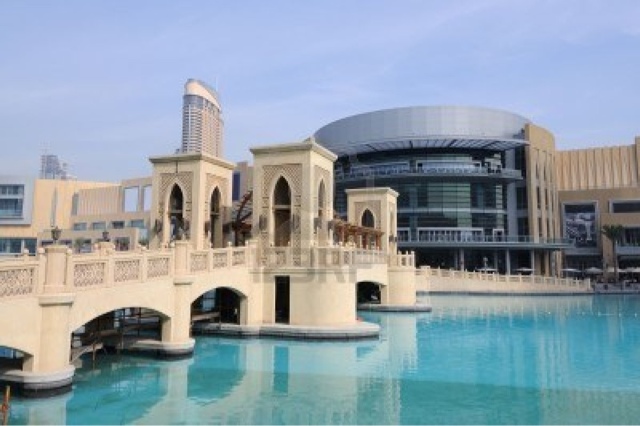Jame Asr Hassanil Bolkiah Mosque: the Second Most Beautiful Mosque in Brunei
I mean it’s really, really beautiful IMO but it falls below Sultan Omar Ali Saifuddin Mosque –
click the link to be the judge. Other than that, I was totally struck
by Jame Asr Hassanil Bolkiah Mosque. I’m don’t have a religion, but I
think I spent much more time there than most of the Muslim tourists I
came across.
Also
called Kiarong Mosque, JAHSM was built to mark the 25th anniversary of
the current Sultan, Hassanal Bolkiah. It’s located next to a bustling
highway but still manages to be peaceful – somehow, the rumble of
vehicle engines was silenced by the Mosque’s tranquility.
I got there on early in the morning while no prayers were performed. At the entrance I saw a madrasah (Islamic school) with little schoolgirls draped in typical pink-and-white baju kurung
uniform, exactly what their counterparts in Malaysia wear. One of the
girls whipped out an iPhone and gave me a photo which I absolutely love,
answering her phone call after the prayer call.
The
reason why Jame Asr Hassanil Bolkiah Mosque isn’t as beautiful as SOASM
is because of the lack of sky and lagoon around it, so it doesn’t stand
out so much in comparison. However, JAHBM definitely beats its
counterpart as far as architecture is concerned. The very sight of it
from afar was immediately enough to convince me that this is one of
Brunei’s must-see places.
The green garden and blue fountain outside were very good complements to the gold and grey mosque.
There’s
an under-the-arch fountain in both Jame Asr Hassanil Bolkiah and Sultan
Omar Ali Saifuddin Mosque. Since it’s present in both, it must have a
special function, though I haven’t found it out until now
What
this mosque has that SOASM doesn’t is a guided tour. All guests must
register themselves, though I didn’t do that (cos I only found out about
it much later and I was kinda lazy to anyway), so I just followed a
group of Thai Chinese tourists following a staff guide and acted as if I
was one of them.
The
camouflage worked – they didn’t seem to mind me joining, maybe cos I
looked a lot like them, being Chinese and foreign and all, and the
mosque staff didn’t realise I was an outsider probably for the same
reason. I felt like a spy, it was fun!
The staff was very helpful and patient as he explained away the mosque’s background and usual practices among the umma (faithful). The keyword here is patient,
because some of the tourists didn’t understand English well so the
staff guide had to re-explain for the tour leader to translate it into
Thai, and I think the tour leader occasionally didn’t quite get it too. I
was probably the only one got it all (and yes I was very impatient :P).
We were reminded not to snap any pictures of the mosque’s interior, but I was too trigger-itchy. To justify it,
ruzhiwashere.com needs good contentI could write the best ever description capable of my diction, but
nothing beats a photo. A batch of photos would promote the mosque a lot
more effectively than words because seeing is believing. Surely, the
mosque staff would see my point and believe it.
The
main entrance. I walked around without wearing a robe and the staff
seemed okay with it, probably because I was properly attired.
The
Jawi character at the center means ‘Allah’ (God). Together with the
character for ‘Muhammad’, these two form the most common (and perhaps
necessary) inscriptions in every mosque
The place where Muslims perform the wudhu, compulsory ritual washing of the body before prayer, as instructed by the Prophet.
I don’t know what this is for, but it sure looks like a container for holy water in a Roman Catholic church.
The
best interior shot that I got was of the prayer room itself. It was
large and very wide with many doors leading into it, and the best part
(at that time) was the air-conditioning – it was quite hot, so this most
important spiritual room soothed my body – and soul if you will. I love
how grand and golden it looked.
I
was so taken in by Jame Asr Hassanil Bolkiah Mosque that I could’ve
spent an extra hour there actually as I wanted to go to every wing of
the building (there’s a north, south, east and west section) but left
for lunch instead as there were other places I wanted to go. It didn’t
feel that bad though, as I had completed at least 80% of the whole
building before leaving.
Returning
at night was also one of my itinerary’s musts but there are no public
buses after 6.30-7pm in Brunei, so I had to scratch that out instead
On hindsight, I could’ve hitchhiked, and I’d eventually do that after
my exploration of Istana Nurul Iman, the palace of the Sultan of Brunei.
Stay tuned!....copy paste from fren

























